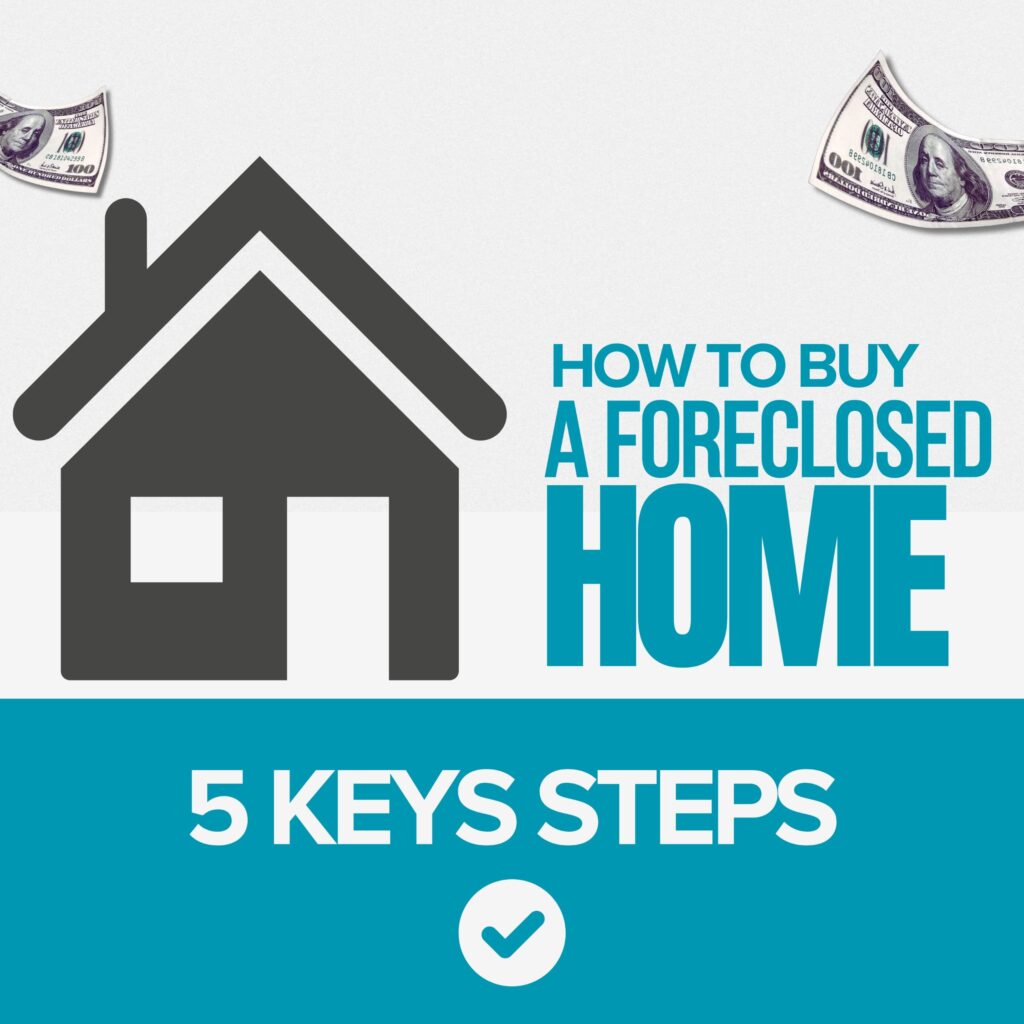Buying a foreclosed home can be an excellent way to secure a property below market value, but it’s not without its challenges. Foreclosed properties are often sold in competitive markets, and the process differs from buying a traditional home. With the right approach, however, you can turn the opportunity into a smart investment.
This guide will walk you through five key steps to successfully purchasing a foreclosed home, helping you make informed decisions along the way.
1. Find a Rockstar Local Agent or Broker

When it comes to buying foreclosed properties, working with a knowledgeable local agent or broker is crucial. These professionals understand the ins and outs of the foreclosure market in your area and can guide you through its unique challenges.
A great agent will:
- Help you locate foreclosures that fit your budget and goals.
- Navigate complex paperwork and legalities involved in foreclosure sales.
- Provide insight into market conditions to ensure you’re making a sound investment.
Look for an agent with experience in distressed properties and a strong track record of working with buyers like you.
2. Other Ways to Find Foreclosed Homes
While your agent is a valuable resource, there are additional ways to discover foreclosed properties. Here are some options:
- Property Listing Websites: Search for “foreclosures” or “REO property” on popular real estate platforms. Many websites, like Zillow or RealtyTrac, have dedicated sections for distressed properties.
- Investor Networking Clubs: Join local real estate networking groups or clubs where experienced investors often share information about foreclosures.
- Big-Bank Websites: Major banks like Wells Fargo and Bank of America have sections on their websites listing foreclosed properties they own.
- Government-Sponsored Enterprises: Check the websites of Fannie Mae and Freddie Mac for foreclosed homes available for purchase.
By exploring multiple sources, you increase your chances of finding a property that aligns with your goals.
3. Get Your Financing in Order

Before bidding on a foreclosed home, it’s essential to secure your financing. Unlike traditional home purchases, foreclosure sales often require buyers to act quickly. Having your financing pre-approved gives you an edge in competitive situations.
Here are some options for financing:
- Traditional Mortgage: Work with your bank or a mortgage lender to get pre-approved for a loan.
- FHA 203(k) Loan: If the foreclosed property needs significant repairs, an FHA 203(k) loan can provide funding for both the purchase and renovation.
- Cash Purchase: If possible, buying with cash can make your offer more attractive to sellers.
Ensure your budget includes not just the purchase price but also repair and maintenance costs, as foreclosed homes are typically sold “as-is.”
4. Research the Market for Foreclosed Homes
Not all foreclosed properties are bargains, so researching the market is critical to ensuring you’re making a good investment. Here’s what to do:
- Analyze Comparable Sales: Look at similar properties in the area to determine a fair price for the home.
- Inspect the Property: Whenever possible, schedule an inspection to assess the home’s condition. Be prepared for hidden issues, as foreclosed homes often come with deferred maintenance.
- Understand the Neighborhood: A great deal on a foreclosed home won’t matter if the neighborhood has declining property values. Research crime rates, school districts, and future development plans.
Doing your homework upfront can save you time, money, and frustration down the line.
5. Bidding on a Home That’s Getting Foreclosed On

When it comes time to bid on a foreclosed property, strategy is everything. Foreclosures can be sold in various ways, including auctions, bank sales, and government listings, each with its own process.
- At Auction: Bidding on a foreclosed home at an auction requires you to have financing ready, often in cash. Auctions can be competitive, so set a firm budget and stick to it.
- Bank-Owned (REO) Properties: These properties are sold by the lender after failing to sell at auction. You may have more room for negotiation with REO properties than at an auction.
- Government Foreclosures: Homes owned by government-sponsored enterprises like Fannie Mae or Freddie Mac may have favorable terms for buyers, especially if you plan to live in the property.
When placing a bid, consider repair costs, potential resale value, and your overall investment strategy.
Final Thoughts
Buying a foreclosed home can be a rewarding endeavor, but it requires preparation and knowledge. By partnering with the right professionals, securing your financing, and thoroughly researching the market, you can navigate the foreclosure process with confidence.
Foreclosures offer unique opportunities for buyers looking to save money or invest in real estate. Are you ready to take the first step? Check out our blog for more tips and resources to help you succeed in the foreclosure market.
| ReplyForwardAdd reaction |



1 Comment
Each paragraph feels like a step along a thoughtful path, leading to places I never knew existed within myself.